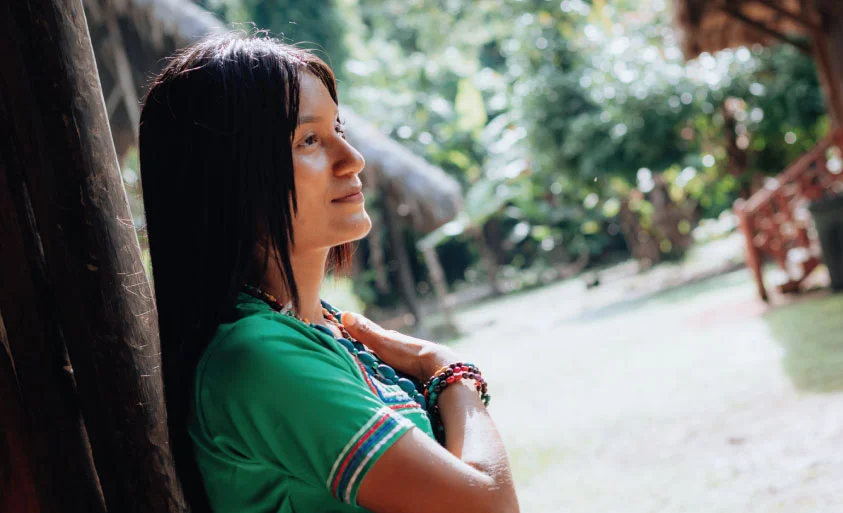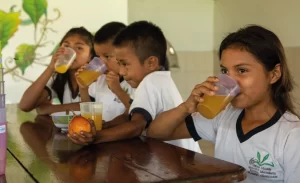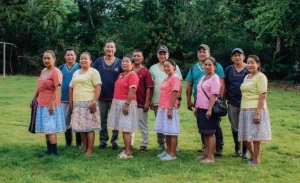Introduction
Women’s empowerment in the Ecuadorian Amazon is key to sustainable development and territorial conservation. For generations, indigenous women have played a fundamental role in environmental protection, cultural preservation, and community economy. However, they have faced challenges such as lack of access to education, employment, and leadership opportunities.
Through training, entrepreneurship, and leadership programs, women in the Kichwa Añangu Community are transforming their future and that of their families. In this article, we explore inspiring stories of women who have overcome obstacles and found empowerment as a tool for change.
The Role of Women in the Kichwa Añangu Community
📍 Guardians of Culture and the Environment
Indigenous women are not only the pillars of their households but also play a crucial role in preserving the Amazon rainforest. Through their ancestral knowledge, they have managed to:
Preserve traditional farming and sustainable harvesting techniques.
Protect native species through responsible management practices.
Pass on the Kichwa language and cultural identity to new generations.
📍 Historical Challenges and the Path to Change
Historically, many women in the Amazon have faced barriers such as:
Lack of access to formal education.
Inequality in economic opportunities.
Limited representation in community decision-making.
Thanks to empowerment initiatives, these barriers are being dismantled, and more women are accessing new opportunities.
Empowerment Initiatives in the Community
📍 Education and Leadership Training
Access to education has been key to empowering women in the community. Through the Sacha Muskuy Foundation, programs have been implemented that include:
Literacy workshops for adult women.
Leadership and community management training.
Education on women’s rights and political participation.
📍 Sustainable Entrepreneurship and Economic Independence
Access to economic opportunities has allowed many women to generate their own income and contribute to their families’ development. Some initiatives include:
Traditional Kichwa handicrafts, sold locally and internationally.
Agroforestry projects, combining sustainable farming with forest conservation.
Community tourism, where women work as guides, cooks, and rural accommodation entrepreneurs.
Stories of Women Inspiring Change
🌿 María, Artisan and Entrepreneur
María, a 45-year-old Kichwa woman, found in handicrafts an opportunity to transform her life. Thanks to Sacha Muskuy Foundation workshops, she improved her skills and started selling her products at fairs and international markets. Today, her creations not only provide her with economic independence but also help preserve the Kichwa cultural heritage.
🌱 Rosa, Community Leader
Rosa always dreamed of improving life in her community. With the support of leadership training programs, she became one of the first women to participate in the community council. Her work has been key in promoting education and health projects in the Kichwa Añangu Community.
The Impact of Women’s Empowerment in the Community
The growth of women’s leadership and independence in the community has led to significant changes:
Over 50 women trained in sustainable entrepreneurship.
40% increase in female participation in community decision-making.
Reduction of the education gap, with more women accessing training and literacy programs.
How You Can Support Women’s Empowerment in the Amazon
Change begins with action. You too can contribute to women’s empowerment in the Amazon:
Donate to fund education and entrepreneurship programs.
Share these stories and help raise awareness of these women’s work.
Get involved in volunteer programs that promote the development of indigenous women.
Conclusion
Women’s empowerment in the Amazon is a driving force for sustainable development and equality. Through education, entrepreneurship, and community participation, women in the Kichwa Añangu Community are building a future with more opportunities.
🌱 Do you want to be part of the change? Support initiatives that promote leadership and independence for Amazonian women.



